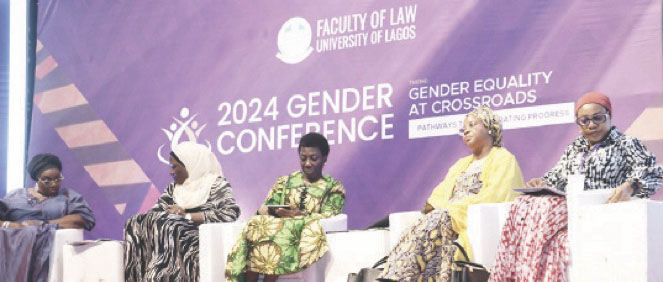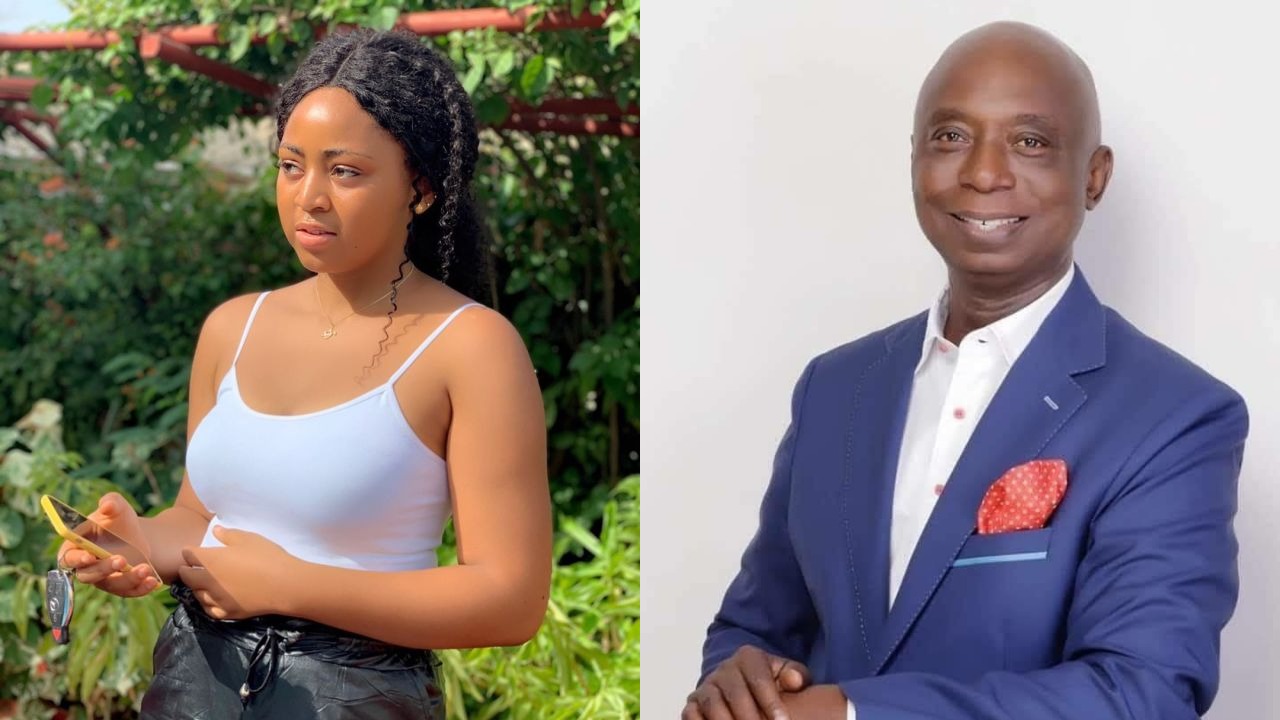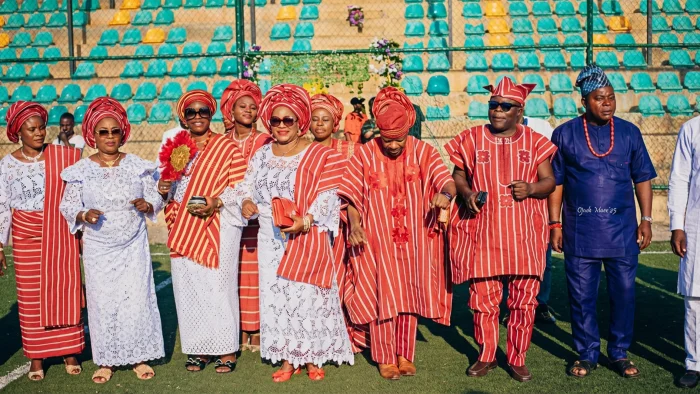
Women and girls represent half of the world’s population and, therefore, also half of its potential. Gender equality, besides being a fundamental human right, is essential in achieving peaceful societies, with full human potential and sustainable development.
Besides, it has been shown that empowering women spurs productivity and economic growth.
Unfortunately, there is still a long way to go to achieve full equality of rights and opportunities between men and women.
Concerned by this development, eminent women, drawn from all walks of life, gathered at the University of Lagos (UNILAG) to fashion out ways of uplifting women to achieve equal opportunities in access to employment, and to positions of leadership and decision-making at all levels.
Led by the first lady and wife of the President, Senator Oluremi Tinubu, the gathering included Oyo State First Lady, Tamunominini Makinde; former First Lady of Ekiti State, Mrs. Bisi Fayemi, wife of former Chief Justice of Nigeria, Mrs. Mariam Uwais, representative of the Deputy Speaker, House of Representatives, Kafilat Ogbara, who is the Chairman, House Committee on Women Affairs, Chairperson, Lagos State Police Officers Wives Association (POWA), Mrs. Abiola Ishola, representative of UNILAG Vice Chancellor, Prof. Ayodele Atsenuwa, Convener of the conference, Prof. Oyelowo Oyewo, Chairperson, Organising Committee, Prof. Iyabode Ogunniran, as well as representatives of Ogun and Lagos First Ladies, among others.
The event was the 2024 Gender Conference of the Faculty of Law, University of Lagos, themed: “Gender equality at crossroads: Pathways to accelerating progress.”
Oyewo set the tone for the conference, highlighting the various gender issues being faced by women, including gender inequality, violence against girl-child, women, discriminatory unemployment practices, economic inequality, and political exclusion, among others.
Citing the 2022 Gender Gap Report, Oyewo disclosed that Nigeria ranked 133rd out of 146 countries on the World, with a score of 0.639. In the area of economic participation, women participation rate is 56 per cent, compared to 80 per cent of men. Women earn 45 per cent less than men in similar roles, they are under-represented in politics with 21 out of 469 members of the National Assembly, and women account for 70 per cent poverty rate.
In terms of violence. he stated that one in every three Nigerian women has suffered physical or sexual violence, while Nigeria has low relative scores on educational attainment for women, with less than 65 per cent wealth equality.
The former Attorney General and Commissioner for Justice in Oyo State, explained that the conference was a platform for advocacy on gender issues, formulating effective and practical proposals to combat the gender gap, sensitising the Nigerian society of the problems and the need for change and transformation in their attitude to gender issues.
Senator Tinubu, in her keynote address, said the event has brought together various stakeholders to discuss the topic that is most timely and necessary.
Tinubu, who was represented by Mariam Obadina, the Senior Special Assistant on Legal Matters in the Office of the First Lady, pointed out that every individual has unique abilities and responsibilities, and should be equipped with specific tools needed to thrive.
Senator Tinubu pointed out that gender equality is essential to achieving peaceful, equitable society and sustainable development, adding that empowering women spurs productivity and economic growth.
However, she noted that there is still a long ways to go to achieve full equality of rights and opportunities between men and women.
Tinubu reminded that the Universal Declaration of Human Rights, a cornerstone of international human rights law, enshrines gender equality as a fundamental right. Adopted by the United Nations General Assembly in 1948, the document proclaimed that all human beings are born free and equal in dignity and rights, and are entitled to all the rights and freedoms set forth in this declaration, without distinction of any kind, such as race, colour, sex, language, religion, birth, or status.
Narrowing the theme, of the conference to her personal journey, first as a girl-child, woman, wife, mother, and lately, legislator, Tinubu said: “I clearly understood the struggles often faced by women in pursuing their dreams in a largely male-dominated world.”
According to her, with the growth of women’s rights movement, Nigerian women have been able to get some laws passed in the parliament to help promote and protect their rights.
One of such laws, she stated, is the Violence Against Persons Prohibition Act 2015, which has helped in addressing gender-based violence in Nigeria. However, Mrs Tinubu lamented that one aspect of women’s rights that has been largely ignored in Nigeria is the political participation of women in decision-making process.
This, according to her, is a major contributor to the low percentage of women representation in governance.
“This has in turn contributed to the gender disparity that exists in decisions made by the government. In my view, we can correct this if women agree to support one another in our political process. Women actually love appointments rather than going through the regals of politics.”
However, Senator Tinubu noted that appointments often do not really influence policies that affect women.
“I worked for 12 years without having the numbers to vote for policies that directly affect me as a woman. For example, I could not effectively vote against underage marriage that affects the girl child,” she lamented.
She enjoined women and girls to remain steadfast, bold, and stay on course.
“Do not wait for opportunities to be handed over. You have to create them. Do not be afraid to be the lone voice. Gender equity is the key to unlocking the full potential of our society. Nigeria stands at a crossroads. And the choices we make today will determine the future for generations to come.
I believe that together we can chart a new path, one where women and men, girls and boys, walk side by side towards a just, prosperous, and peaceful future,” the first lady stated.
Ogun State First Lady, Mrs Bamidele Abiodun, said although women are excelling in various sectors, including banking, oil and gas, law, and technology, among others, women’s political participation remains below average.
Abiodun noted that insurgency in the northern part of the country, coupled with the COVID-19 pandemic, dealt a significant blow to the progress so far made by women.
According to her, the pandemic saw a disturbing rise in gender-based violence, exposing the vulnerability of women during the crisis. She tasked participants to focus on comprehensive solutions in three critical areas, including political participation. addressing gender-based violence and economic empowerment.
Abiodun, who was represented by Dr Funke Oyeleye, stressed the need to establish quotas or automated action policies to ensure at least 35 per cent female representation in political offices.
She also emphasised on strengthening mentorships and leadership programmes for young women, providing them with the skills and network to navigate political systems, and address structural barriers, including campaign financing and cultural biases, that hinder women’s political ambition.
Abiodun further added that women’s economic empowerment is key to unlocking development and achieving global growth. To support these, she stressed the need to promote financial literacy programmes, and eliminate workplace discrimination that hinders women’s progress.
Ogbara, who represented the Deputy Speaker of the House of Representatives, Benjamin Kalu, disclosed that data from the last election showed that out of over 15,000 candidates, fielded by 18 political parties, only 1,562 were women.
Ogbara said based on research, Nigeria could experience up to nine per cent growth in its Gross Domestic Product (GDP) by 2025 if women participation across sections, including politics, is significantly enhanced.
“This is why we must build gender inclusion as an investment not a concession, recognising societal benefits that it brings.
Ogbara said the House of Representatives is introducing various initiatives as part of measures to tackle gender inequality.
Among such initiatives is the proposed bill for an act to alter the
provisions of the constitution to provide for special seats with attention for women in the National and state Houses of Assembly.
The bill, according to Ogbara, who is the Chairman, House of Representative Committee on Women Affairs, represents a pragmatic, time-bound solution to address Nigeria’s first ban on the post-electoral system, which often undermines women’s electoral chances.
“This bill is going to be aligned to have one extra House of Representatives member for each state, and an extra Senator for each state. The proposal for reserve seats is expected to be reviewed after full electoral cycle, with progress determining the continuation.
“We are going to start a campaign that political parties must have a reform, where they will no longer be submitting single gender lists to the electoral body for elections, where we are going to have 24 members of the House of Representatives, and they will all be men, where we will have 20 members of House of Assembly and they will all be men, or women. It must be mixed.
The lawmaker noted that these internal reforms are vital complements to constitutional measures, ensuring that women have equitable opportunities to lead.
“When women lead, they bring perspectives that enhance governance, engender peace, and drive equitable policy outcomes.”
Ogbara tasked participants at the conference to commit themselves to being catalysts for change.
Chairperson, of the Organising Committee, Prof. Iyabo Ogunniran, said the conference is aimed at creating a platform to push the right narratives on the appropriate dimensions of gender-related issues.
Ogunniran said the conference sought to interrogate the Nigerian context from three perspectives; women and political participation; economic empowerment and gender-based violence.
Makinde, in her remarks, said the conference would serve as a platform to discuss discrimination against women and also find solutions to gender inequality.
To have a society with gender equality, Makinde said we must continue to encourage women’s education, their participation in politics and governance; and women empowerment, so that women are not vulnerable to offers that expose them to sexual and gender-based violence.
The Oyo State First Lady lamented that abuse on women and young children is on the increase, prompting calls for gender equality.
Makinde stressed that women are making efforts to participate in politics and encouraged men to support them in this task.
Wife of Lagos State Governor, Dr. Ibijoke Sanwo-Olu, urged stakeholders at the conference to champion the cause of gender equality in the country. She insisted that women be given equal opportunities in all spheres of lives.
Sanwo-Olu, who was represented by Mrs. Muyinat Mustapha, acknowledged the role of women in national development, and expressed hope that the conference would help in changing the narrative on gender inequality.
In her contribution, Wife of former Governor Kayode Fayemi of Ekiti State, Bisi, appealed to stakeholders to be serious about gender issues and work towards addressing the several discriminations against women.
The Vice Chancellor, Prof. Folasade Ogunsola, described gender inequality as a major roadblock to women having equal opportunities in the society.
Ogunsola, who was represented by the Deputy Vice Chancellor (Development Services), Prof. Ayodele Atsenuwa, said with the planned review of the constitution, federal lawmakers, participating in the conference, should include laws that would make women relevant in the scheme of things.
Chairperson of POWA in Lagos State and wife of the Commissioner of Police, Mrs. Abiola Ishola, also emphasised the urgent need to address gender inequality in the country.
Ishola, who represented the wife of the Inspector General of Police, appealed to participants to address issues of discrimination against women and girls in every facet of the society.
At the end of the discourse, the stakeholders demanded equal opportunities for women in all spheres of the nation’s political and economic system.







